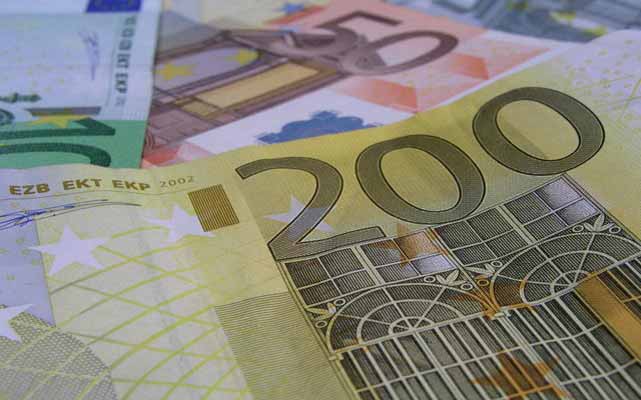Pound-to-Euro Forecast: GBP Tipped to FALL to 1.1365 says UK Bank
- Written by
David Woodsmith

After failing to make headway on Monday, the Pound Sterling to Euro exchange rate (GBP/EUR) has retreated to around 1.1520 on Tuesday.
The latest UK government borrowing requirement has increased concerns over tax hikes in the Autumn as well as unsettling the bond market which has hampered the Pound in global markets.
Equity markets, however, have held firm which has provided some Sterling relief and helped avoid a larger sell-off.
Rabobank is uneasy over UK fundamentals and has a 6-month GBP/EUR forecast of 1.1365.
ING notes that the Pound has not been able to take advantage of more favourable yield spreads which indicates that markets are putting a higher risk premium on the UK currency.
The bank added; “That GBP risk premium is partly because of the euro’s idiosyncratic strength (due to its appeal as a reserve currency) but may also embed some UK budget concerns. Those were fuelled further this morning as the UK unveiled larger borrowing for June than expected by the UK fiscal watchdog.”
The UK government borrowing requirement surged to £20.7bn for June from £14.1bn the previous year. This was above consensus forecasts of £17.4bn and the second-highest June deficit on record.
The deficit was also above the 17.1bn OBR forecast for the month.
For the first three months of fiscal 2025/26, the deficit widened to £57.8bn from £50.3bn the previous year which is close to the OBR target for the first quarter of the year.
Looking at induvial components, debt interest payments more than doubled to £16.4bn from £8.0bn the previous year.
There was an increase in receipts with a big increase in NIC contributions to £17.4bn from £14.3bn, but this was offset by a strong increase in overall spending.
ONS acting chief economist Richard Heys commented; “The rising costs of providing public services and a large rise this month in the interest payable on index-linked gilts pushed up overall spending more than the increases in income from taxes and National Insurance contributions, causing borrowing to rise in June.”
Gilts lost ground after the data with the 10-year yield increasing to 4.63%.
The yield, or interest rate, on 10-year UK bonds has risen by two basis points (0.02 percentage points) to 4.634%.
Longer-dated, 30-year, bond yields have risen by almost three basis points to 5.47% and only 13 basis points below 27-year highs seen in April.
Higher yields will put further upward pressure on debt servicing, increasing the risk of a vicious cycle for the Pound.
The data triggered fresh market fears surrounding the budget outlook and policy implications.
According to Capital Economics UK economist Alex Kerr; “the government’s u-turns on spending cuts and potential upward revisions to the OBR’s borrowing forecasts means the Chancellor will probably need to raise £15-25bn at the Autumn Budget to maintain the £9.9bn of headroom against her fiscal mandate.”
He added; “And given that she is struggling to stick to existing spending plans and we doubt the gilt market will tolerate significant increases in borrowing, she will probably have to raise taxes instead.”
Goldman Sachs added; "We think a rising fiscal risk premium is the main driver of the recent outperformance of EUR/GBP."
STORY LINK Pound-to-Euro Forecast: GBP Tipped to FALL to 1.1365 says UK Bank

After failing to make headway on Monday, the Pound Sterling to Euro exchange rate (GBP/EUR) has retreated to around 1.1520 on Tuesday.
The latest UK government borrowing requirement has increased concerns over tax hikes in the Autumn as well as unsettling the bond market which has hampered the Pound in global markets.
Equity markets, however, have held firm which has provided some Sterling relief and helped avoid a larger sell-off.
Rabobank is uneasy over UK fundamentals and has a 6-month GBP/EUR forecast of 1.1365.
ING notes that the Pound has not been able to take advantage of more favourable yield spreads which indicates that markets are putting a higher risk premium on the UK currency.
The bank added; “That GBP risk premium is partly because of the euro’s idiosyncratic strength (due to its appeal as a reserve currency) but may also embed some UK budget concerns. Those were fuelled further this morning as the UK unveiled larger borrowing for June than expected by the UK fiscal watchdog.”
The UK government borrowing requirement surged to £20.7bn for June from £14.1bn the previous year. This was above consensus forecasts of £17.4bn and the second-highest June deficit on record.
Save on Your GBP/EUR Transfer
Get better rates and lower fees on your next international money transfer. Compare TorFX with top UK banks in seconds and see how much you could save.
For the first three months of fiscal 2025/26, the deficit widened to £57.8bn from £50.3bn the previous year which is close to the OBR target for the first quarter of the year.
Looking at induvial components, debt interest payments more than doubled to £16.4bn from £8.0bn the previous year.
There was an increase in receipts with a big increase in NIC contributions to £17.4bn from £14.3bn, but this was offset by a strong increase in overall spending.
ONS acting chief economist Richard Heys commented; “The rising costs of providing public services and a large rise this month in the interest payable on index-linked gilts pushed up overall spending more than the increases in income from taxes and National Insurance contributions, causing borrowing to rise in June.”
Gilts lost ground after the data with the 10-year yield increasing to 4.63%.
The yield, or interest rate, on 10-year UK bonds has risen by two basis points (0.02 percentage points) to 4.634%.
Longer-dated, 30-year, bond yields have risen by almost three basis points to 5.47% and only 13 basis points below 27-year highs seen in April.
Higher yields will put further upward pressure on debt servicing, increasing the risk of a vicious cycle for the Pound.
The data triggered fresh market fears surrounding the budget outlook and policy implications.
According to Capital Economics UK economist Alex Kerr; “the government’s u-turns on spending cuts and potential upward revisions to the OBR’s borrowing forecasts means the Chancellor will probably need to raise £15-25bn at the Autumn Budget to maintain the £9.9bn of headroom against her fiscal mandate.”
He added; “And given that she is struggling to stick to existing spending plans and we doubt the gilt market will tolerate significant increases in borrowing, she will probably have to raise taxes instead.”
Goldman Sachs added; "We think a rising fiscal risk premium is the main driver of the recent outperformance of EUR/GBP."
International Money Transfer? Ask our resident FX expert a money transfer question or try John's new, free, no-obligation personal service! ,where he helps every step of the way, ensuring you get the best exchange rates on your currency requirements.
TAGS: Pound Euro Forecasts
Comments are currrently disabled
Related Stories:
- Pound Sterling Secures Five-Month Best Against Euro - February 3, 2026
- British Pound to Euro Forecast: Best EUR Buyer Rates in Months - February 3, 2026
- Pound to Euro Rate Holds Near €1.15 on Strong UK PMI - February 2, 2026
- Pound to Euro Week Ahead Forecast: GBP Resilient, EUR Structural Edge - February 2, 2026
- Pound to Euro Forecast: GBP Resistance as Banks Warn on UK Yield Pressure - January 30, 2026
- Pound to Euro Rate "Treads Water" as Sentiment Signals Clash - January 29, 2026
- British Pound to Euro Forecast: GBP Reclaims 1.15 as EUR Rally Pauses - January 29, 2026
- Pound to Euro Forecast: GBP Clings On as EUR/USD Surge Dominates - January 28, 2026
- Pound to Euro Today: Rangebound as Markets Await ECB Signals - January 27, 2026
Latest News:
- Pound Sterling Secures Five-Month Best Against Euro - February 3, 2026
- GBP/USD Forecast: Pound Sterling Steady Near $1.37 Ahead of BoE - February 3, 2026
- British Pound to Euro Forecast: Best EUR Buyer Rates in Months - February 3, 2026
- Pound Sterling to Dollar Forecast: GBP Jumps, Fed Independence Fears Hit USD - February 3, 2026
- GBP/USD Forecast: Pound Sterling Lacks Momentum Ahead of US Jobs - February 2, 2026
- Pound to Euro Rate Holds Near €1.15 on Strong UK PMI - February 2, 2026
- Euro to Dollar Forecast: Fed Credibility Tested as EUR/USD Volatility Surges - February 2, 2026
- Pound to Dollar Week Ahead Forecast: 1.40 Back in Focus - February 2, 2026
- Pound to Euro Week Ahead Forecast: GBP Resilient, EUR Structural Edge - February 2, 2026
- Pound to Dollar Forecast 2026: USD Rebounds as Warsh Pick Halts GBP Rally - February 1, 2026









